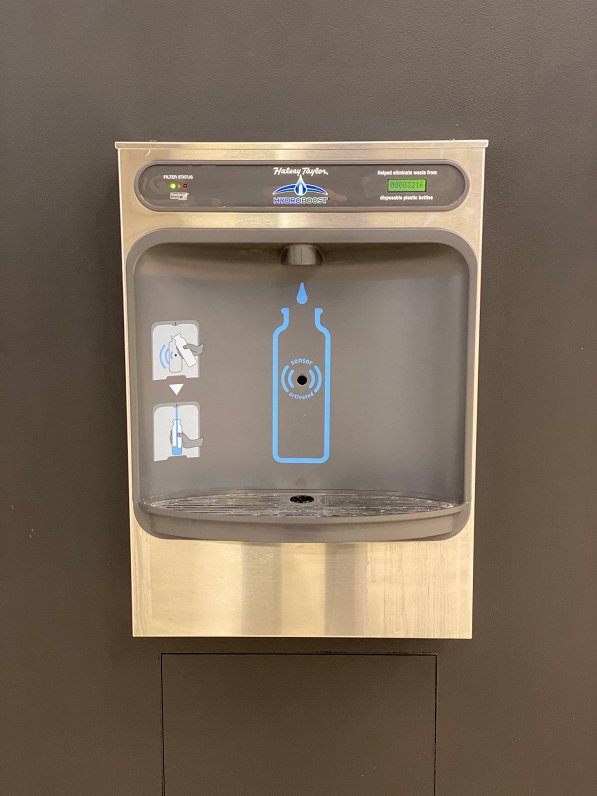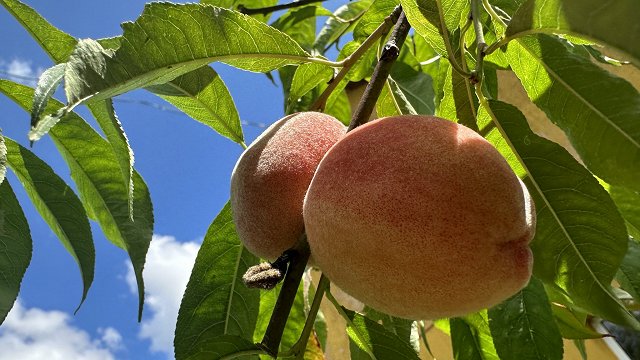Rīga currently has 11 public drinking water taps where anyone can fill their bottle. In comparison with cities in southern Europe where these refill stations are very popular and often situated in the city center, Rīga only has one in the center, by the Rolands statue in Rātslaukums. There is another one in the Central Market but it does not work. Other taps are located in the suburbs - Kundziņsala, Voleri, Krēmeri and others, where households can have issues with centralized water system.
“Riga Water” public relations specialist Artūrs Mucenieks said that several years ago the number of taps was higher, for example, next to the Monument of Kārlis Ulmanis or the Radisson Blu Latvija Conference & Spa Hotel, but they had to be taken down in the center of Riga due to hooliganism.
“Our experience with free taps may not be the best, and it's normal that some of them don't work anymore. Once the most popular tap was on Raiņa Boulevard, opposite the Café Leningrad, which was set up at the end of the 19th century. It is planned to be restored in the future, and “Riga Water” had added pipelines to this tap in 2001, but as it was regularly broken, the tap was shut down again.”
Mucenieks said that the installing and management of drinking water spots is expensive. This is why it is unknown when the existing taps could be restored or new ones installed.
Map of free drinking water locations
Refill water in a café or shop
Some stores also operate free refill taps, thereby allowing customers to avoid buying extra plastic bottles. There are only a few places like that Stockmann, Origo and the Zeroveikals.
“There are unfortunately not enough publicly available drinking water points in Riga. There are people who come to us to fill up their water bottles everyday, because they are in their daily business in the city and care about their own and environmental health. When filling water in a reusable water bottle, people reduce the daily consumption of plastic and do not expose their organism to unnecessary microplastic intake through disposable plastic bottles,” said an employee at the Zeroveikals store.
Another way of filling water is in cafes or restaurants. In Latvia, the owners of several cafes, scientists of Riga Technical University (RTU) and representatives of Latvian water supply and sewer companies have joined the activist community “Ū Vitamīns” with a view to promoting the idea of accessing clean free drinking water from the tap, as well as reducing the consumption of plastic bottles. For example, there are a number of establishments - the network of cafes “Ezītis miglā”, “Caffeine”, “Costa Coffee”, etc. - where free water is offered to everyone, already in jugs. Respecting national restrictions, this possibility also exists during the pandemic.
Doubts about the quality of drinking water
Urban planner and anthropologist Viesturs Celmiņš thinks people might not be informed about the refill locations. But he believes it only takes a couple of times to see that the tap doesn't work, has been battered or overturned, and people won't want to drink from it. In addition, water quality is likely to be a concern for people.
The water quality is monitored by the “Riga Water” water quality laboratory, taking samples in the city's water pipeline distribution network, said Artūrs Mucenieks, representative of “Riga Water”. The results of this are regularly reported to the Health Inspectorate.
“In Latvia, underground water predominantly contains of iron and manganese. (..) We fight with it, rinse water so that this situation is perfect, and if it is not, it is our responsibility. There is nothing wrong there that could threaten human health.”
“The taps are the visible part of the iceberg, but the invisible is how we perceive water in the culture. In ancient times, people got poisoned, there were infectious diseases, and there are some horrible images on the Internet of what water storage looks like. People drank at home or at work, and if we remember, there was still no mineral water in the shop in the 1990s as a category, not to mention dozens of brands with different flavors. The modern person believes that water should be used more actively and more, and once it has been dealt with by these water taps, which have an unfashionable, unmodern, non-progressive way to provide infrastructure,” said anthropologist Celmiņš.
He said that taps in Rīga would have potential, but the water quality should be reported systematically, as well as there should be updates of the fact that it is healthy, drinkable and safe to use in the urban environment.
Is there a risk during the pandemic?
The Health Inspectorate points out that the installation of drinking water points in pandemic conditions poses risks to the spread of Covid-19 infection by assembling and not observing distance. Other risks are not likely as the virus does not spread through the aquatic environment.
But perhaps Covid-19 has reinforced the already existing notion that water consumption in the city is unhygienic. One of the technical solutions in these circumstances would be a non-contact water filling system with the help of a sensor. An example of this are the taps at Rātslaukums and Origo. No button needs to be pressed to refill the bottle.
The Health Inspectorate explained that in such cases, if the water point is indoors, it is necessary to follow safety measures by disinfecting the surfaces and wearing masks, as well as to use the tap one person at a time and to respect distance requirements.



























